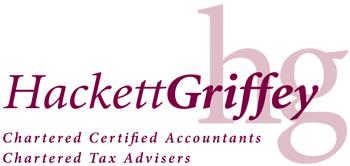 Add My Company
Add My Company
Sign In
The Scottish rate of income tax: an overview
24-02-2016

Under the Scotland Act 2012 the Scottish Parliament is set to acquire new powers over income tax rates from April 2016. The landmark changes will see a new Scottish rate of income tax (SRIT) introduced for Scottish taxpayers, which will apply from 2016/17 onwards.
What is the new SRIT?
With effect from 6 April 2016, taxpayers who are deemed to be resident in Scotland will pay two types of income tax on their non-savings income.
Under the new system, the main UK rates of income tax will be reduced by 10p for Scottish taxpayers, and the Scottish Parliament will levy the SRIT in its place. The Scottish Parliament has the choice of whether to reduce or increase the SRIT beyond 10p and there are no lower or upper limits.
In its draft Budget on 16 December 2015, the Scottish Government announced that the SRIT would be set at 10p in the pound for 2016/17.
What do the changes mean?
Where an individual is deemed to be a Scottish taxpayer by HMRC on account of where they live, or reside, the new rules will trigger a change in PAYE procedures, and this could affect employers that are based outside Scotland. A new 'S' prefix will be introduced to the tax code of Scottish taxpayers, and payroll software must be able to apply variable rates of SRIT.
Determining an individual's tax status
Where a taxpayer lives either in Scotland or elsewhere in the UK, determining whether or not they are a Scottish taxpayer will be a simple process. If an individual has one place of residence, within Scotland, they will be a Scottish taxpayer.
For those who have more than one place of residence in the UK, it will be necessary to determine which has been their 'main place of residence' for the longest amount of time during the tax year. Should it not be possible to identify a main place of residence, it will be necessary to calculate the number of days spent in Scotland compared with those spent in other parts of the UK. The answers to these questions will determine whether or not an individual is deemed to be a Scottish taxpayer.
Keeping records
While many individuals will not need to keep additional records, for some it will be advisable to retain certain records and documents to help determine their taxpayer status. This may include a range of evidence, from household bills, subscriptions and local parking permits, to club memberships, GP registrations and bank statements.
Key points
Employers should ensure that their systems are updated in order to deal with the new, variable SRIT
The new rules could affect even those employers outside Scotland, if they have employees deemed resident in Scotland
Employers are encouraged to help ensure that their employees keep HMRC updated with any relevant changes to their personal details
However, they should not make changes to an employee's tax status unless advised to by HMRC
For some taxpayers it may be advisable to retain certain records and documents, such as household bills and bank statements, to help with the process of determining their taxpayer status.
With Holyrood set to acquire additional devolutionary powers in the future, business owners should ensure that they keep abreast of the latest announcements.
This article is for guidance only and it is always advisable to seek professional assistance.
For more information on The Scottish rate of income tax: an overview talk to Hackett Griffey LLP
Enquire Now
More News
List your company on FindTheNeedle.
